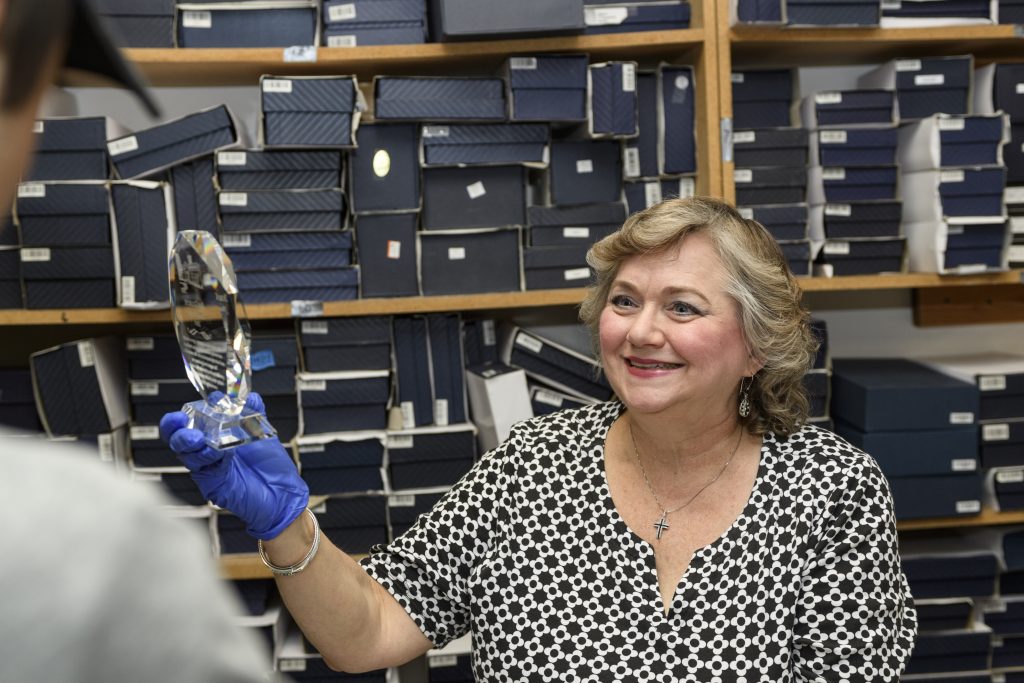Program provides adults with disabilities opportunities through skill building

Pleasanton Adult and Career Education’s paid internship program (PIP) equips adults with developmental and intellectual disabilities to develop versatile, competitive job skills that open doors to meaningful employment opportunities.
Participants in PIP for adults with disabilities (AWD) attend one of two adult schools in the Mid-Alameda County Consortium that provide services, vocational training, and job support for adults with disabilities
Sarah Kimiecik, director of child nutrition services for the Pleasanton Unified School District (PUSD), says the interns working in the district’s cafeterias bring a strong work ethic and calm demeanor to their roles, helping keep students fed while preparing 9,000 breakfasts and lunches daily.
“The interns gain a sense of pride and independence by earning their own money, empowering them to save for meaningful goals and achieve things they value.”
Laura Martinez, Employment Training Specialist, Pleasanton Adult and Career Education’s Adults With Disabilities Program
“They always ask such involved questions,” Kimiecik says. “It reminds our kitchen staff to slow down, focus on the process, and ensure every step is done correctly.”
Interns gain hands-on experience in food handling and preparation while serving students and contributing meaningfully to their work environments.
Overcoming Barriers to Employment
“Many adults with disabilities face unique challenges in the job market, particularly during interviews,” explains Laura Martinez, an employment training specialist with the AWD program. “High anxiety, combined with autism or other intellectual disabilities, can make it harder for them to showcase their abilities or adapt to conventional workplace expectations. However, with the right support and opportunities, they excel and bring incredible value to their roles.”
Martinez emphasizes that meaningful employment provides these individuals with a sense of purpose and belonging. “Limited job opportunities can lead to feelings of isolation and depression, but the AWD program changes that by equipping participants with skills and confidence to succeed,” she says.
Tailored Internships for Lasting Impact
Each year, the program accepts up to 16 participants who complete a series of 10-week paid internships at diverse work sites. These sites include retail stores, manufacturing companies, Information Technology roles, restaurants, medical offices, city parks, and positions within the school district. Interns earn $17.16 per hour, exceeding the state’s minimum wage and rotate through roles tailored to their personalities and interests.
Kimiecik notes the program’s collaborative approach: “We’re very involved in placing interns where they’ll thrive, and we work closely with the AWD staff to ensure consistent communication and support.”
Participants also attend daily work-skills classes, covering topics like time management, teamwork, and handling workplace challenges. These classes provide a safe space to address issues, refine strategies for success and develop soft skills.
Building Independence and Confidence
Beyond workplace skills, the program empowers interns to navigate public transit and manage their earnings, fostering greater independence. Since 2018, 80 interns have completed the program. Of these, 2 secured full-time positions, while 17 found part-time work in fields they love. Four declined offers, choosing to pursue opportunities aligned with their personal goals.
“Our interns stand out for their strong work ethic and reliability once they master their tasks,” Martinez says. “It’s incredibly rewarding to see them grow in confidence and contribute meaningfully to the workforce.”
Kimiecik, who has hired four former interns, encourages other local employers to consider hosting AWD program participants. “It’s a remarkable opportunity,” she says. “Not only do these interns bring value to the workplace, but they also inspire and uplift those around them.”
Employers who offer internship opportunities at their workplace often report positive experiences, highlighting the interns’ strong work ethic, reliability, and eagerness to learn.
The program’s success highlights the transformative power of inclusion, demonstrating that with the right support, individuals not only thrive in the workplace but also inspire those around them to reimagine what’s possible.
Pleasanton Adult and Career Education (PACE) is part of the Mid-Alameda County Consortium (MACC), one of 71 consortia of adult education providers across the state. The MACC includes Chabot College, Las Positas College, Eden ROP, Tri Valley ROP, and the adult schools in Castro Valley, Dublin, Hayward, Livermore, New Haven, Pleasanton, San Leandro, and San Lorenzo. For more information about PACE, go to https://adulteducation.pleasantonusd.net/. For more information about the MACC and its member schools, go to www.macc4ae.org.
Written by Gail Short
| Regions | Classes & Topics |
|---|---|
| Bay Area California | Life Skills |